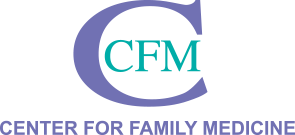National Children’s Dental Health Month

February is National Children’s Dental Health Month, so there’s no better time to spotlight the importance of maintaining your teeth and gums. A smile is the best thing you can wear, so it’s important to upkeep your oral health. Although having good oral hygiene can certainly help the way your teeth look, keeping clean teeth and gums also helps your overall health, too. Did you know that dental health affects the whole body?
How Dental Health Affects the Whole Body
Your mouth houses germs that can travel to the rest of your body, so you have to work hard to keep your mouth clean. Some (not all) germs are bad, and poor dental health can sometimes lead to illnesses like cardiovascular disease and pneumonia. Your dentist might be able to tell that you have conditions like osteoporosis and diabetes just from looking at your mouth, simply because your teeth and the rest of your body are connected. Untreated tooth decay can cause pain, infections and lead to problems eating, speaking and learning. Children with poor oral health may also suffer mentally, with low self-esteem due to embarrassment and social anxiety.
What Makes a Good Dental Care Routine?
- In order to stay as healthy as possible, it’s crucial that you maintain a consistent and thorough oral health routine.
- Brush your teeth for around three minutes twice a day with a fluoride toothpaste
- Remember to brush your tongue and gums, too
- Floss daily, or use a dental pick if you have braces, wire retainers, or bridges
- Use mouthwash at night
Your Health Matters This Month and Every Day
Although February is Children’s Dental Health Month, you have to think about your dental hygiene every month because it affects your entire body and your overall health. If you have pain in your gums, swelling or lumps in your mouth, or unexplained tastes in your mouth, call your dentist first. They can re-direct you to a physician if needed. For more information about dental care versus primary care, contact us at Center for Family Medicine.


